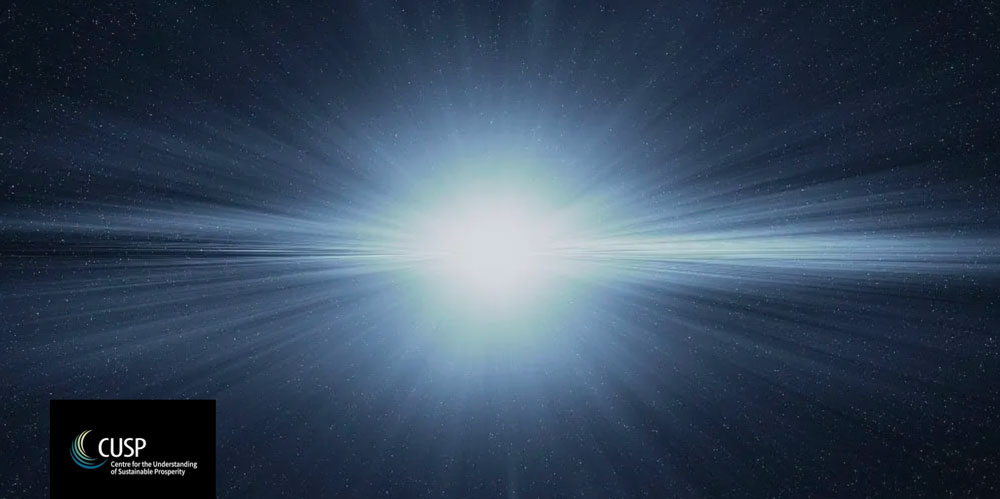The moral vision of environmental sceptics
Richard Douglas introduces his new CUSP working paper, in which he uses ‘Listening Rhetoric’ to attend to the moral vision which environmental sceptics are keen to defend. The key to understanding their rejection of environmentalism—and doing more to counter the appeal of their arguments—lies in recognising their preoccupation with defending a moral vision of modernity, he argues.
There are a number of names for them—the ‘Green Backlash’, the ‘brownlash’, ‘anti-environmentalism’, the ‘environmental opposition’. Perhaps most popularly, they are ‘climate denialists’ or ‘climate contrarians’. They are environmentalism’s most explicit and implacable opponents. Think of figures such as Lord Lawson, Bjørn Lomborg (the self-styled ‘Skeptical Environmentalist’), and Myron Ebell (briefly head of the US Environmental Protection Agency in President Trump’s transitional team). Indeed, think of President Trump himself, probably the most famous climate change denier on the planet.
As recent reports on climate change (by the United Nations, the World Meteorological Society, and US National Climate Assessment) make clear, the stakes in this debate could hardly be higher. The outlook is not good: as the UN highlights, there is an ‘enormous gap between what we need to do and what we’re actually doing to prevent dangerous levels of climate change.’ Writing in the New Yorker, Bill McKibben comments on the influence which networks of right-wing think-tanks and commentators have had on preserving the carbon-intensive status quo which has taken us to this precipitous position. By arguing against the science of climate change, they have used their ‘power to slow us down precisely at the moment when we needed to speed up’.
What motivates these opponents of environmentalism? Why do they make this their cause? For many observers, the answer is obvious: here is a movement organised and funded by fossil fuel companies and other big polluters, with the aim of incapacitating government from taking measures which would harm their economic interests. A number of studies have highlighted the economic ties and political motivations of many of these figures, and the techniques they use to sow doubt about the findings of environmental science.
But is this the full story? After all, some 63 million people voted Donald Trump for US President in 2016, despite his views on ‘that climate change bullshit’ being common knowledge. This is not to suggest that everyone who voted for Trump shared his views on climate change, or that this was the decisive reason why anyone voted for him. The point is more that his anti-environmentalist views were well known – and in this sense, that such a large number of people voted for him represents a mass (at least tacit) endorsement of the ‘acceptability’ of such views.
This is to say, opposition to environmentalism has become a feature of political ideology and the culture wars which have been spreading outwards from the United States in recent years. If there is to be a rapid acceleration in environmental policy-making, therefore—and as Marit Hammond argues, this is only conceivable through democratic means—this has to mean the development of political arguments that are capable of winning over hearts and minds on a mass scale.
This understanding informs the doctoral research in environmental politics and philosophical anthropology I am carrying out at Goldsmiths, University of London, and for the Centre for the Understanding of Sustainable Prosperity (CUSP). It is my contention in this work that the sentiments of environmentalism’s most partisan opponents are indicative, though in a peculiarly explicit form, of a sense of existential angst felt more popularly at the idea of imposing limits to the forward momentum of human progress.
To explore this reading of environmental debate I have utilised what the rhetorician Wayne Booth called ‘Listening Rhetoric’. Booth begins from the awareness that all too frequently the opposing sides in a debate never properly listen to each other: ‘Fanatical non-listeners thus waste book after book, article after article, attacking selected extremes, while dogmatically preaching to some version of their own side’. What the world needs, he suggests, is a reduction in rhetorical warfare, ‘ways of probing beneath pointless disputes: methods of discovering shared ground beneath surface water’.
To this end I have conducted interviews with, and performed close readings of texts written by, speakers from the discourse of environmental scepticism – the more neutral term I have preferred to use for this analysis, as part of an attempt to bracket out any logical or empirical criticism which might otherwise obstruct my ability to understand their discourse on its own terms.
In a key plank of my research (published as CUSP Working Paper No 17, ‘The commonplaces of environmental scepticism’), I have examined the rhetorical commonplaces—the taken-for-granted truths and values a speaker would expect to be shared with their audience—that are drawn on by environmentally sceptic speakers, in order to ‘read off’ the positive values and vision of the world that they are keen to defend.
What this reveals is that, running throughout the criticisms they make about environmentalism and the selective, often cynical, scepticism they bring to bear on climate scientists, is a highly moral vision. In their defence of themselves, they play to idealised notions of science, rationality, and the wisdom of common folks. In justifying the importance of their arguments, they make a defence of a vision of individual liberty, and stress the utilitarian value in acting to increase the material welfare of the maximum number of people. And in arguing why they are right on the facts of environmental science and politics, they depend on visions of humans as essentially good and wonderful beings, who are able to create their own fundamentally benevolent fate.
Are environmental sceptics sincere in these sentiments, or is articulation of such a moral vision just a cynical ploy to give their self-interest wider appeal? The theory of rhetorical criticism suggests we should take the use of moral justifications seriously, even if we would have reason to doubt the objective legitimacy of such claims. The extent to which a speaker personally believes in the moral ideals he or she invokes is to a considerable extent immaterial: the rhetorical invocation of morality, if successful, will still key into, and reshape or reinforce, the boundaries of what it is socially acceptable—at least within a certain group—to say or do. People can’t help but reach for moral justifications, in other words.
This insight, I hope, may offer some clue as to how debate, from an environmentalist perspective, might be more productively conducted with environmental sceptics and those amenable to their arguments. Perhaps it might be possible to find, on a deeper or more abstract level, a set of moral principles into which the more specific values of both environmentalism and environmental scepticism could both be translated. The key to this may lie in understanding the appeal of a moral investment in an overarching story of human progress, and exploring how such a moral regard for human agency might be compatible with transition to a post-growth world.
LINK
- Douglas, R 2018. The Commonplaces of Environmental Scepticism. CUSP Working Paper No 17. Guildford: University of Surrey.




